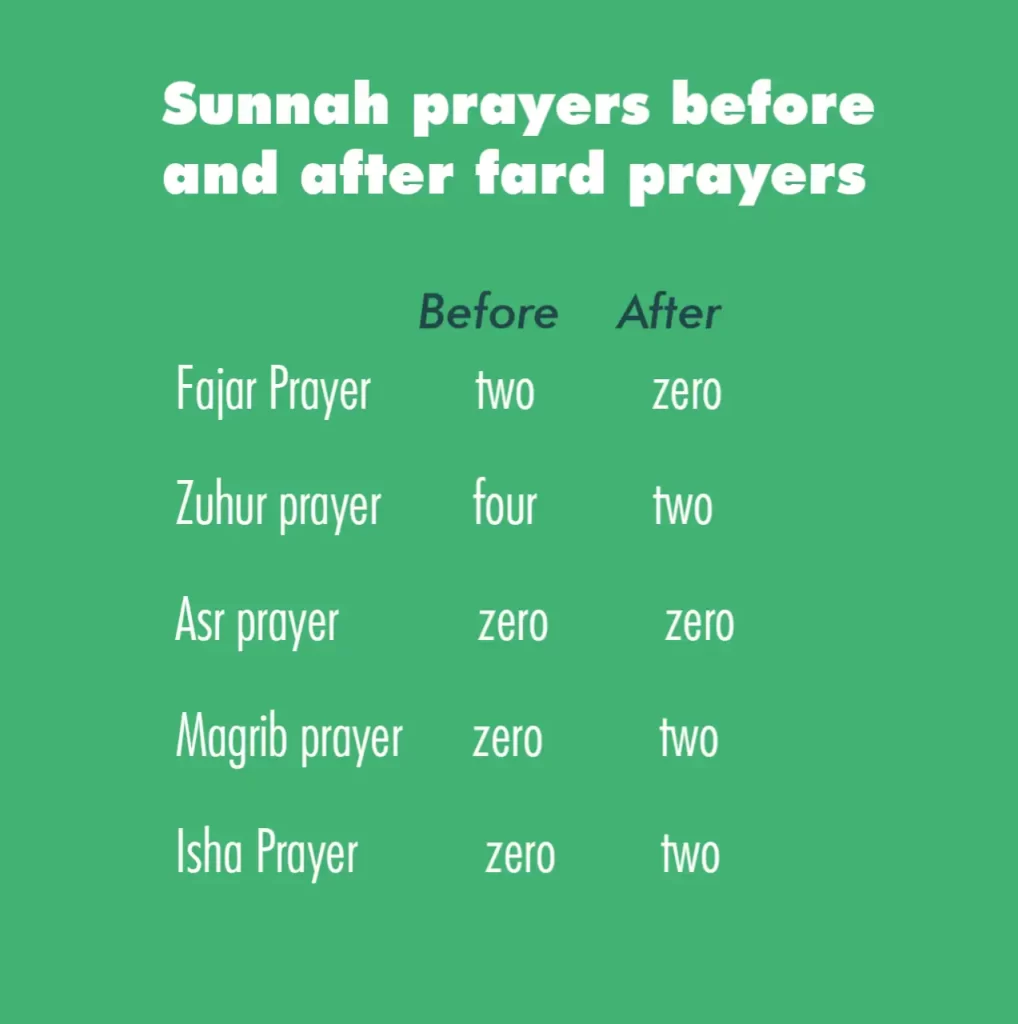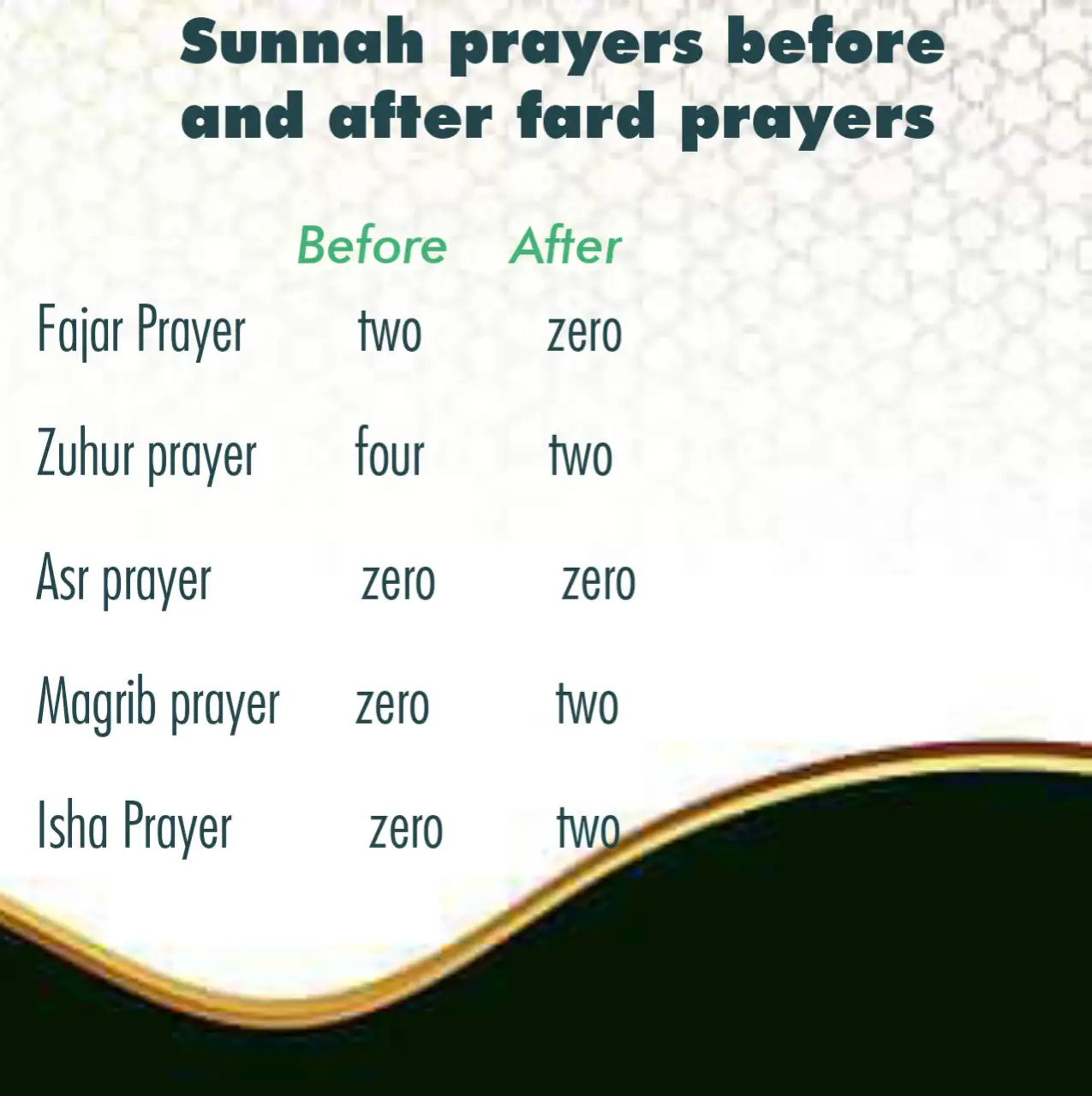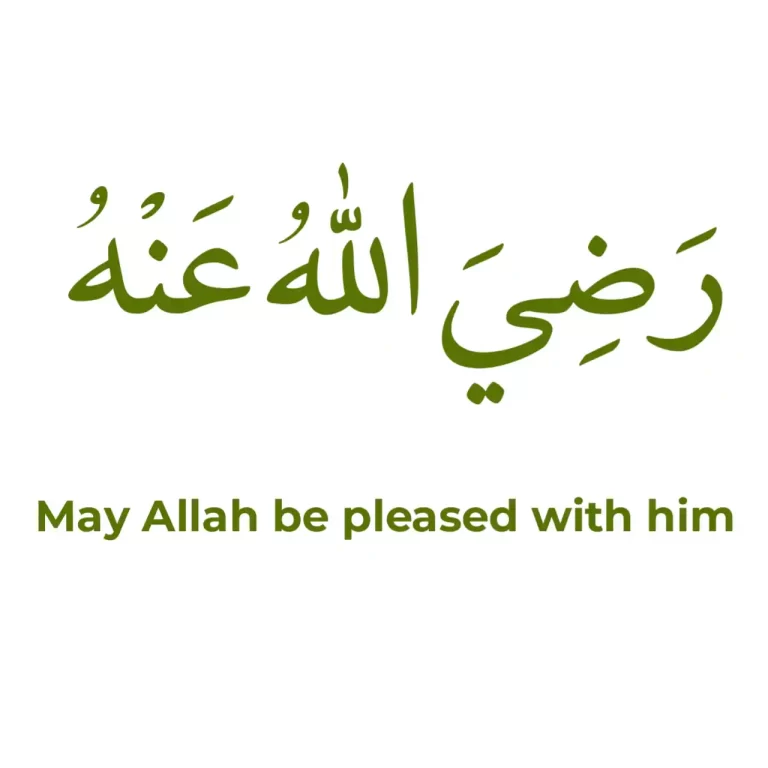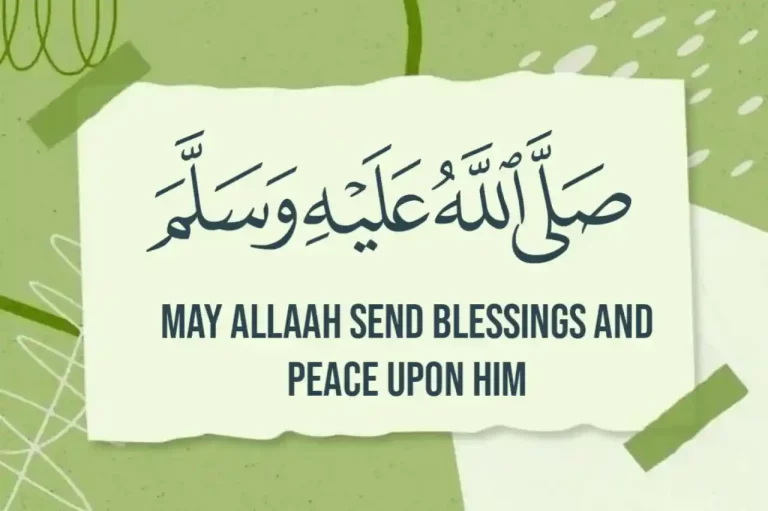12 Sunnah Prayers Before And After Fard Prayers
What are the sunnah prayers before and after fard prayers? In this post, you will learn them and their significance or importance.
Advertisements
The word “sunnah” refers to the Prophet Muhammad example or practise (peace and blessings be upon him).
Sunnah Prayers refer to the ritual prayers (salah) that the Prophet Muhammad SAW prayed in addition to the fard (obligatory) prayers.
These Prayers are optional, however, it is highly recommended and advised you perform them on a daily basis.
Following the Prophet’s example reaps its own rewards, and if one has any uncompleted fard Prayers on Judgment Day, the uncompleted fard Prayers will be made up with sunnah Prayers.
Advertisements
The optional Prayers that the Prophet always performed are known as the sunnah mu’akkadah (confirmed sunnah).
Other optional Prayers, such as the one before Asr,’ he conducted on a less regular basis. This explains why the number of rak’ahs preceding various prayers varies.
List Of Sunnah Prayers Before and After Fard Prayers
Sunnah Prayer Before Fajr
It is highly recommended to pray two rak’ahs of Sunnah before the fard prayers in subh prayer also known as dawn prayer.
This rak’ahs are called (raka’ataa alfajir) two rak’ahs of Fajr.
If you join the congregation without having performed two Rak‘ah of Sunnah due to some unavoidable circumstances, you can offer them after the congregational lead Prayer.
Advertisements
The Ummah unanimously accepts that the two Rak’ahs Sunnah prayer before Fajr is the most significant Sunnah prayer as opposed to the remainder Sunnah Mu’akkadah, based on Prophetic injunctions.
The following are some Ahadeeth of the Prophet (PBUH) on the Sunnah prayer before Fajr:
It was narrated that Aisha Radiyallahu Anha said that the Messenger of Allah said that
Advertisements
“The two Rak’ahs of Fajr are greater than this world and all that is in it. According to another narration, the Prophet (Peace be Upon him) stated that, “These two (pre-Fajr) Rak’ahs are dearer to me than the entire universe”.
(Muslim)
It was also reported that Aisha Radiyallahu Anha also said that,
The Prophet (peace be upon him) was never more regular and stringent in offering any nawafil (voluntary prayers) than the two Rak’ahs (Sunnah) before Fajr (dawn) prayer.
(Bukhari and Muslim).
Abu Huraira Radiyallahu Anhu said that, the messenger of Allah said,
“Do not leave two Rak’ahs of Fajr, even if horses tread over you (even if you are being attacked by a cavalry”.
(Abu Dawud).
Sunnah Prayers for Dhuhr
Before the fard Prayers of Dhuhr (noon prayers), it is Sunnah to perform two or four rak’ahs of sunnah.
In addition, after the fard prayer of zuhur, two more rak’ahs of sunnah should be performed.
What is the reward of praying Sunnah zuhur prayers?
There is an authentic hadith where the Prophet (SAW) said, whoever prays four raka’as before and four raka’as after the Dhuhr he will be forbidden for hellfire, meaning that he will be saved from hell fire.
These eight raka’as, six of them are part of the emphatic sunnah.
We know that there are 12 raka’as that the Prophet (peace be upon him) never abandoned when residing.
He would only abandon some or skip some when he travels.
So the hadith where the Prophet Muhammad SAW says whoever observes 12 raka’s in the day and the night Allah will build him a mansion in jannah (paradise).
He explained to us these twelve raka’s, two before fajr, four before the zuhur, two after the zuhur, two after maghrib and two after isha.
The noon prayer has four before and two after, these are emphatic.
Whenever the Prophet of Allah SAW traveled, he used to skip these six raka’as of the voluntary prayers and the two after maghrib and the two after isha.
Sunnah Prayers for Asr
Before the fard Prayers, Asr (Afternoon Prayer), you should either perform two or four rak’ahs of sunnah.
It is also important to note that performing sunnah prayers after Asr until sunset is prohibited according to Sunnah.
Sunnah Prayer For Magrib
Maghrib (Sunset Prayer) is the fourth fard daily prayers. After this obligation prayers, it is recommended to pray two rak’ahs of sunnah.
Sunnah Prayer After Isha
Isha (Night Prayer) is the last daily fard prayer. After the fard Prayers, two rak’ahs of sunnah is recommended.
Witr: One or three rak’ahs, or any odd number between one and thirteen. Witr Prayer can be performed right after the sunnah Prayer after Isha, just before bed, or after Tahajjud (optional Late Night Prayer).
Summary of sunnah prayers before and after fard prayers.
| Before | After | |
| Fajr | 2 | 0 |
| Dhuhr | 4 | 2 |
| Asr | 0 | 0 |
| Magrib | 0 | 2 |
| Isha | 0 | 2 |
There are two types of Sunnah prayers, one is Sunnah prayers which are performed before the obligatory prayers.
It is not correct to start praying the Sunnah prayers before the time of fard (obligatory prayers) begins.
Instead, you should wait until the time for that prayer arrives before praying it.
Consider reading Why Was Surah Al Falaq Revealed? (All You Need To Know)

Benefits of sunnah prayers
Concerning the benefits of sunnah prayers, the messenger of Allah (peace and blessings of Allah be upon him) said:
“Whoever prays twelve rak’ahs during the night and day, a house will be built for him in Paradise: four before Zhuhr and two after, two rak’ahs after Maghrib, two rak’ahs after ‘Isha and two rak’ahs before Fajr prayer.”
(Narrated by al-Tirmidhi).
You should take care of the Sunnah and nafl prayers besides observing the obligatory ones so that you may attain closeness to Allah the Exalted.
It was narrated that the Messenger of Allah (Peace Be Upon Him) said that,
“The slave attains closeness to Allah by way of offering optional or Sunnah (nafl) prayers.”
Moreover, if there happens some shortcomings in your obligatory prayers, the Sunnah and nafl ones will supplement them as the prophet of Allah (Peace be Upon him) is also said,
“The first thing for which a person will be brought to account on the Day of Resurrection will be his fard (obligatory) salah.
If it is found to be complete then it will be recorded as complete, and if anything is lacking He will say:
‘Look and see if you can find any nafl, voluntary prayers with which to complete what you neglected of your obligatory prayers.’ Then the rest of his deeds will be reckoned in the same manner”, (Tirmidhi).
Time of sunnah prayers
The time for a Sunnah prayer that comes before an obligatory prayer is from the beginning of the time for that prayer, until the iqamah.
From the start of the period for that prayer until the iqamah, a Sunnah prayer that comes before an obligatory prayer is allowed.
The period for a Sunnah prayer that follows a compulsory prayer is from after the salam at the end of that prayer until the end of that prayer’s time.
Advertisements








2 Comments